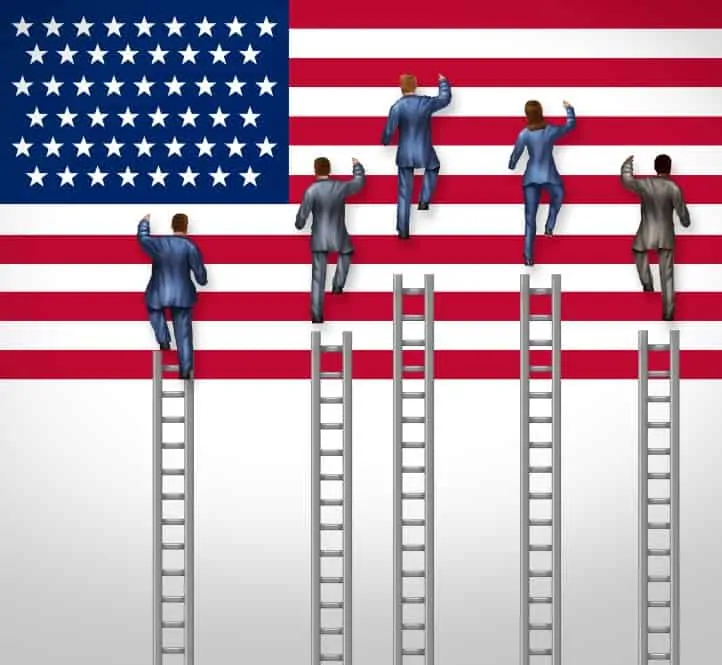Now that Iowa Caucus and New Hampshire voters have cast their ballots for presidential contenders, the 2016 race is officially underway. The next president will have a dramatic impact on the U.S. based on how he or she resolves — or fails to resolve — national social and economic issues. What does this mean in the long term for the markets and the U.S. economy?
The Republican Nominee
With a caucus win in Iowa, Ted Cruz reinforced that Iowa is still very conservative and anti-Washington. In contrast, the more moderate New Hampshire voting base gave Donald Trump a solid win in that state’s primary. However, the race for second and third place is interesting as well.
In Iowa, Trump’s second-place finish was to be expected, but Marco Rubio’s strong third-place finish was surprising and he began to emerge as the establishment “favorite” — until New Hampshire, when John Kasich took second place and Cruz, Jeb Bush and Rubio all garnered more than 10 percent of the vote.
What this means is that Trump, Kasich, Rubio, Cruz and Bush are all still legitimate contenders for the Republican nomination. Going into the next primary in conservative South Carolina, it will be interesting to see whether Trump continues to hang on to strong support or if another candidate will capture the voters’ favor.
The Democratic Nominee
There’s still no clear front-runner on the Democratic side, where Hillary Clinton barely beat Bernie Sanders in the Iowa caucus and lost by more than 20 percentage points in New Hampshire. Voters in New Hampshire were especially critical of Clinton’s trustworthiness, where 92 percent said they felt Sanders was more honest and just 6 percent said the same about Clinton. There may be upcoming repercussions for Clinton based on her involvement in the Benghazi scandal and her use of a private email server during her time as Secretary of State, thus putting classified information at risk.
What this points to is that Sanders, a self-avowed socialist, has a chance at becoming the Democratic nominee — and at least, is a viable option for those voters in upcoming primary states. U.S. markets are likely to react unfavorably to even the possibility of a turn toward a more socialist state, which has historically meant less investment and less innovation. While Sanders is not likely to triumph over the more moderate Clinton in the more conservative Southern states, his momentum is something to watch.
What does the future hold?
The difference between the Republican and Democrat parties feels much more pronounced than in past elections. Even among Republicans, some candidates favor closed markets vs. open ones, want to close the borders vs. offer some level of amnesty, or promote pro-business trade deals vs. opposing possible job losses from such deals. Your vote could have a significant impact on the social and financial status of the U.S. going forward.
Points to remember when determining who to vote for:
- Has this candidate been involved in scandals? A candidate involved in a scandal is more likely to continue to make poor decisions.
- Do you like the direction America is heading? A candidate who supports the current President’s policies is likely to deliver more of the same.
- Are you looking for a better business climate along with less regulations? A candidate who understands business and has experience in that realm is likely to have a positive impact on the market.
- Do you think our government has grown too big? A candidate who believes in smaller government is likely to promote reduced taxes and a reduction of the deficit, which will lead to an improved economy.
- Are you concerned about our 18 trillion dollar deficit? A candidate who promotes government spending as the answer to our problems will promote higher taxes, nationalization of financial institutions and universal health care with its increase in spending, which has the potential to drive down the economy.
- Are you in favor of free-market capitalism? A candidate who believes in the values of free-market capitalism is likely to have a positive impact on the economy and promote more business growth, jobs and prosperity.
Markets and the economy are dramatically impacted by who gets elected. The 2016 election is a pivotal turning point for the United States. Will we return to small government, free markets and limited taxation? Or will we turn further down the path of government intervention and move toward a socialist economy? Your bottom line, our way of life, will hang in the balance this November.

